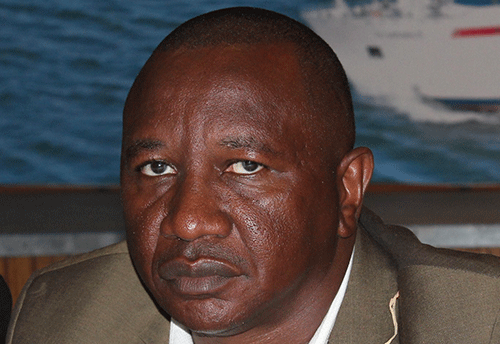WALVIS BAY - The government should allocate fishing quotas to bona fide right holders only and not auction such, industry players have urged.
Speaking during the annual fishing industry address in Walvis Bay last week, chairperson of the Confederation of Namibian Fishing Associations Matti Amukwa said the auctioning of fishing quotas defeats the purpose of investment and job-creation.
“The auctioning of fishing quotas to the highest bidder is not provided for in the Act, does not maximise value for the government, and is moving Namibia from the rights-based system back to a vessel-based system, which was the regime before the independence of Namibia.
This approach is also discouraging Namibianisation because only well-established companies can compete in such auctions, at the disadvantage of hundreds of Namibian right holders who are new to the fishing business,” he stressed on behalf of the industry.
Amukwa said fishing businesses can likewise not invest due to the uncertainty which comes with the auctioning system.
The government has for the past three years made millions from auctioning fishing quotas, whereby the Democratic Republic of Congo also participated in 2021 and bought 27 000 tonnes of horse mackerel for over N$80 million.
Amukwa said the “cash cow” perception must be rooted out, and “horse-trading” operations must be stopped within the industry.
Hence, they, as an important stakeholder, advise against the auctioning of fishing quotas as it does not maximise economic benefits for Namibians and discourages investment in fisheries.
Furthermore, the auction system creates uncertainty in fishing operations, operating like a lottery where no one can predict how much fish they will win in the next season. As such, he said, no one can invest long-term in such conditions, and the auction of quotas kills innovations in value-addition.
“This is because once you win an auction, the government is limited in how many other conditions it can impose on such right holders in terms of value-addition, employment and social responsibilities. If a quota is allocated to a right holder, you can put on conditions, or even withdraw the quota. But if the quota is acquired at the auction, it becomes private property,” Amukwa noted.
He then pointed out that the local fishing industry has sustained more than 16 000 jobs over the years because right holders could count on an annual allocation of fishing quotas, but are finding it difficult to do so due to the auctioning of quotas.
“Going forward, we need to do more value-addition and invest long-term to create the much-needed jobs, especially for our youth. This is part of the ministry’s commitment under NDP5,” he added.
He said it would thus be difficult to achieve job-creation targets in the fishing industry, given the unpredictability of fishing quotas created by setting aside large parts of the TAC for auction purposes.
“The industry, therefore, urgently needs policy coherence on this matter - are we still on a rights-based system and quota allocation, or have we moved to a quota auction system? We cannot have both. Hence, the government needs to provide guidance on this matter,” Amukwa stated.
- edeklerk@nepc.com.na
Caption:


